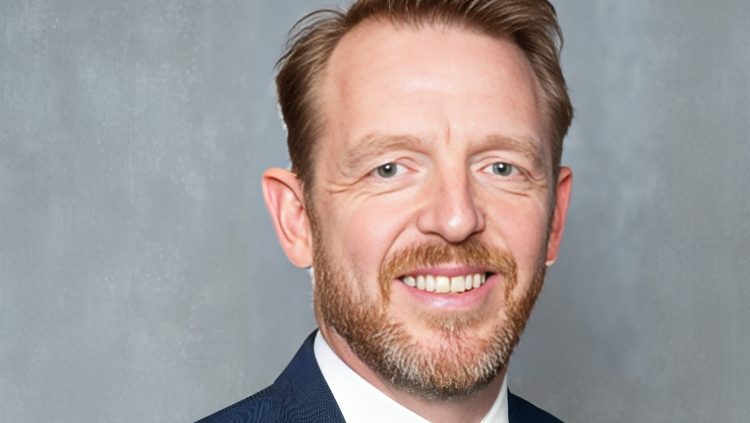Richard Simcock, Chief Medical Officer at Macmillan Cancer Support, recently posted on LinkedIn:
“A sunny morning in Chicago and jet lag meant that I got to see all of it, from dawn onwards. So, no excuse not to be present and correct at 8am for the second day of the conference. A morning session on leptomeningeal disease took a determined look at a manifestation of metastatic disease usually associated with a grim prognosis.
The attitude of the investigators here echoed that of plenary speaker Doug Abrams later in the day when he said “The difficult is hard, the impossible is a little bit harder.”
I sat in on a thorough review of follow-up care for people after early breast cancer which covered sexual wellness, symptom management and problems after reconstructive surgery. It was here (as is often the case at international conferences) that you are reminded that the context of care varies hugely across the globe.
Most speakers, especially those from the USA, were talking from a standpoint of supporting people who were still regularly attending oncology clinics long after treatment had finished, including in one case for regular (and unproven) arm measurements for lymphedema.
In the UK most breast units have moved to a ‘supported self-management’ program (i.e. call us if you need us). It’s a scheme which massively reduces hospital attendance and can work very well, but it deprives people with cancer of any form of regular check-in and monitoring. Remote symptom monitoring systems, including wearables, were among the proposed solutions along with chatbots for symptom discussions that “did not significantly underperform compared to the physician.”
Further context is that this conference takes place at a time when the US Government have massively reduced research funding. There has been almost no mention of this at the conference except a reference in the introduction to the ASCO Presidential address, which described “these times” as being “unprecedented” and “challenging”. I asked a US colleague why no one was talking about the threat to science and was chilled by their response; “Fear”.
It is not just money for science which is under threat but trust in science itself. Days before the conference RFK Jnr accused major medical journals of being corrupt. A poster from MD Anderson extracted data from the large HINTS survey in the USA and showed that only 77% of cancer survivors would trust information from a doctor and only 52% would trust information from a ‘scientist’.
I spoke with Brandon Godinich, the study author who said that “Trust is fading”. At Macmillan Cancer Support we have always worked to be a trusted source of cancer information but are now realising that provision of information alone is not enough, and that we need to build bridges into communities so that information is trusted.
Google’s mission statement has been “to organise the world’s information and make it universally accessible and useful” so it was exciting to have Ruth Porat, President and CIO of Alphabet and a person with lived experience of breast cancer reflect on the future in a talk she titled ‘Why not?’. The title came from the Google team that made the Nobel prize-winning AlphaFold, an AI software that visualises protein structures in minutes and massively accelerates drug discovery.
Porat thought AI in cancer is a point of ‘lift off’ and compared it to Google Translate which added nearly half of its’ 250 languages in only the last year. Another reason for Porat to be present was for the joint launch of Google’s agentic AI collaboration with ASCO Guidelines, making it quicker and easier to find the guidance you require.
A session on education for oncologists in training was dominated (quite rightly) by doctors in training. A comprehensive survey on AI (yes again) confirmed that healthcare workers needed training and education to feel comfortable with this tool. As moderator, Doug Flora put it “we just need to get in the sandbox and start playing.” HIs description of a Fellow using Perplexity AI to research a topic, ChatGPT Deep Research to refine the references and Claude Sonnet 4 to write the presentation for ASCO showed how literally weeks of work could be condensed into just 30 minutes.
Also useful was an excellent trial run by trainees for just under $500, making me wonder if it was the cheapest trial of the conference. A training program using bite-sized podcast, The Fellow On Call improved oncologists’ confidence and knowledge compared to usual didactic training. The rise of the oncology podcaster was cemented by a session on social media, led by USA podcasters Two Onc Docs and Oncology Brothers. This trial evidence confirmed my bias after seeing the excellent responses to our Macmillan Professionals podcast and seeing the amazing content put out by Naman Julka-Anderson and Jo McNamara on Rad Chat.
The day ended with an invitation to a ‘Celebration of Queer Joy’ hosted by Cheeky Charity and The Cancer Network to honour LGBTQIA+ voices in oncology. I was honoured to attend with Alison Berner from the UK’s own UCATS service – a model that is envied globally. The venue was the decadent ‘Lips Palace’.
A short walk from the conference centre and with the biggest mirror ball display I have ever seen, it will forever put all other conference venues to shame. The theme was ‘joy’ but the mood was determination that LGBTQIA+ people with cancer will always get care without discrimination.”
More posts featuring ASCO25.


